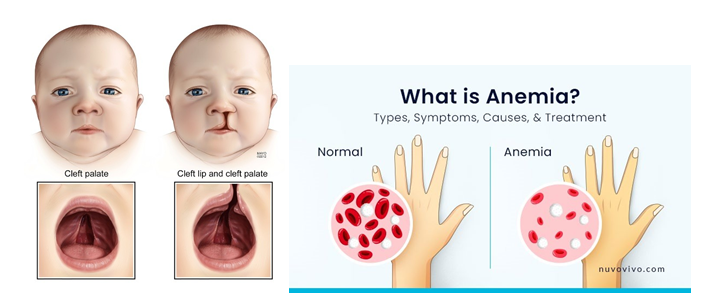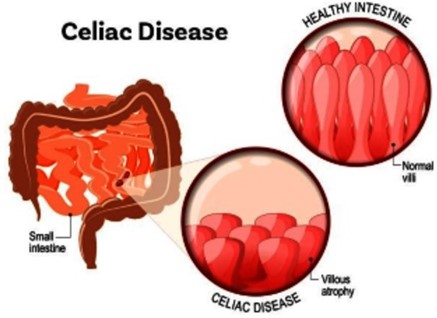A 9-week-old infant is scheduled for a cleft lip repair. Which information is most important for the nurse to convey to the surgeon before transporting the infant to the surgical suite?
White blood cell count of 10,000/mm (10x 10/L).
Weight gain of 2 pounds (0.91 kg) since birth.
Red blood cell count of 2.3 cell/mcl or (2.3 x 10/L).
Urine specific gravity is 1.011.
The Correct Answer is C
Answer: C. Red blood cell count of 2.3 cells/mcl or (2.3 x 10/L).
Rationale:
A. White blood cell count of 10,000/mm³ (10 x 10⁹/L): This is within the normal range for an infant, indicating no immediate concern for infection or immune response. It does not need to be urgently conveyed to the surgeon.
B. Weight gain of 2 pounds (0.91 kg) since birth: This is a positive sign indicating healthy growth and nutritional status, but it is not a critical concern that would affect the immediate surgical plan.
C. Red blood cell count of 2.3 cells/mcl or (2.3 x 10⁹/L): This low RBC count indicates anemia, which is critical information for the surgeon. Anemia can increase the risk of complications during and after surgery due to potential issues with oxygenation and healing, making it the most important information to convey.
D. Urine specific gravity is 1.011: This indicates normal hydration status and is not immediately relevant to the surgical procedure. It does not need to be urgently reported to the surgeon compared to the low RBC count.

Nursing Test Bank
Naxlex Comprehensive Predictor Exams
Related Questions
Correct Answer is ["1"]
Explanation
1 teaspoon.
The child has been prescribed loratadine 5 mg once a day. The botle is labeled "Loratadine for Oral Suspension, USP 5 mg per 5 mL." This means that for every 5 mL of the suspension, there is 5 mg of loratadine. Since 1 teaspoon is equivalent to 5 mL, the nurse should instruct the parent to administer 1 teaspoon with each dose to provide the prescribed 5 mg of loratadine.

Correct Answer is B
Explanation
The nurse should include rice in the list of allowed foods for a child who is newly diagnosed with celiac disease. Rice is a gluten-free grain and is safe for individuals with celiac disease to consume. Rye, oats, and barley all contain gluten and should be avoided by individuals with celiac disease. However, some individuals with celiac disease may be able to tolerate oats that are certified gluten-free and not contaminated with other gluten-containing grains.

Whether you are a student looking to ace your exams or a practicing nurse seeking to enhance your expertise , our nursing education contents will empower you with the confidence and competence to make a difference in the lives of patients and become a respected leader in the healthcare field.
Visit Naxlex, invest in your future and unlock endless possibilities with our unparalleled nursing education contents today
Report Wrong Answer on the Current Question
Do you disagree with the answer? If yes, what is your expected answer? Explain.
Kindly be descriptive with the issue you are facing.
